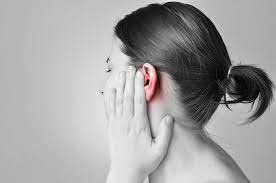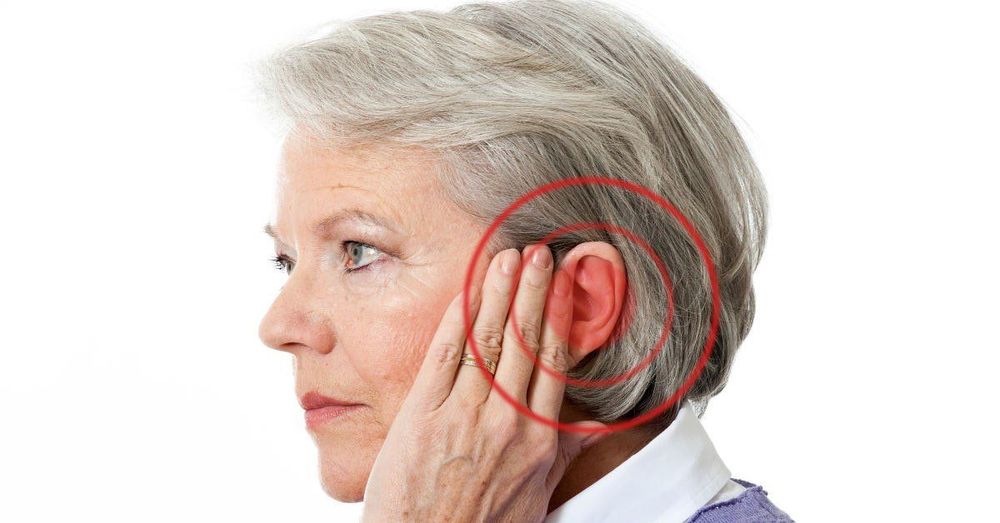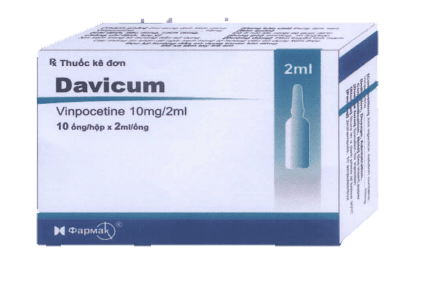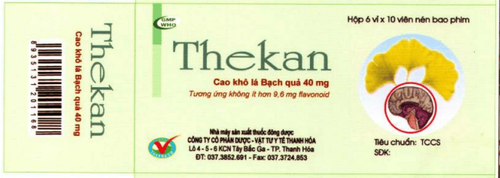This is an automatically translated article.
Tinnitus can be described as the perception of sound (usually in the form of ringing or hissing) without an external source of sound. Although a significant number of patients report persistent tinnitus that seems to have little or no impact on daily life, others are constantly annoyed by the condition and must continually seek tinnitus. Ear disease related to what disease to treat thoroughly.
1. What is persistent tinnitus?
Tinnitus is the perception of sound when there is no actual external noise. Although this condition is commonly referred to as "tinnitus," tinnitus can manifest in a variety of sound perceptions, including buzzing, hissing, whistling, pinching, and clicking sounds. In rare cases, tinnitus patients report hearing sounds like music. Tinnitus can be an acute (temporary) or a chronic (persistent) health condition, classified into 2 main groups:
Subjective tinnitus: Noise in the head or ears that only the patient knows. Subjective tinnitus is often a sign of auditory and neurological responses to hearing loss but can also be caused by a variety of other triggers. More than 99% of reported cases of persistent tinnitus are subjective. Objective tinnitus: Noise in the head or ears that can also be heard by the patient and others. These sounds are usually produced by internal functions in the circulatory system and the body system due to musculoskeletal movement. In this case, the patient can be examined and described as persistent right tinnitus or persistent left tinnitus. Regardless of which side is affected, objective ear tumors are rare, accounting for less than 1% of all tinnitus cases. Currently, there is no scientifically proven cure for most types of tinnitus. However, there are treatment options that can reduce the perceived burden of persistent tinnitus, allowing patients to lead more comfortable and productive lives.
2. Symptoms of persistent tinnitus
Although commonly referred to as "tinnitus", this condition can actually manifest in a variety of sounds perceived by the patient, both timbre and pulsating.
Accordingly, in most cases, persistent tinnitus is a subjective noise, that is, can only be heard by a person with tinnitus and describes hearing sounds ranging from ringing, hissing, crickets, wind whistling, roaring, vibrating, waves crashing, humming, the sound of dialing in a phone, even music.

Ù tai kéo dài dường như có ít hoặc không ảnh hưởng đến cuộc sống hàng ngày,
3. What disease is tinnitus related to?
In many cases, persistent tinnitus can be a symptom associated with a variety of other health conditions. Therefore, finding the cause of tinnitus with specialized tools and tests can reduce the burden of tinnitus, thereby helping to improve the quality of life for patients.
3.1. Tinnitus due to hearing loss Neurological hearing loss is often accompanied by tinnitus. Some researchers believe that subjective tinnitus cannot exist without some prior damage to the auditory system. Primary hearing loss can be the result of:
Age-related hearing loss: Hearing usually gets worse as people get older, usually starting around age 60. This form of hearing loss tends to bilateral, causing persistent right-sided tinnitus and also persistent left-sided tinnitus, which is associated with loss of sensation to high-frequency sounds. Age-related hearing loss partly explains why tinnitus is so common in seniors. Noise-induced hearing loss: Exposure to loud noises, either in a single traumatic event or over time, can impair or lose hearing. At this time, noise-induced hearing loss is sometimes unilateral and often causes the patient to lose hearing around the frequency of the resulting acoustic trauma. 3.2. Obstruction in the middle ear A blockage in the ear canal can cause pressure to build up in the inner ear, affecting the functioning of the eardrum. Furthermore, objects that directly touch the eardrum can also irritate the organ and cause tinnitus symptoms. Common local obstructions are:
Lots of earwax (exudative otitis media); Hair loss in the ear canal; Dirt or foreign object in the ear canal. In many cases, removing the blockage will alleviate the symptoms of tinnitus quickly. However, in some situations, the blockage may have caused permanent damage to chronic tinnitus before it was detected.
3.3. Head and neck injuries Severe trauma to the head or neck can cause problems with nerves, blood flow, and muscles, leading to tinnitus. Patients often show tinnitus onset after head and neck trauma, as well as greater variability in both sound and frequency.
3.4. Temporomandibular joint disorders Another example of what tinnitus is related to is a temporomandibular joint disorder. Damage to muscles, ligaments, or cartilage in joints can lead to tinnitus symptoms. This structure is adjacent to the auditory system and shares some ligaments and nerve connections with structures in the middle ear.
Tinnitus patients with temporomandibular joint disorder will experience pain in the face and/or jaw, limited jaw mobility, and a frequent popping sound when chewing or speaking. Your dentist, craniofacial surgeon, or other oral health professional can make this diagnosis quickly and will effectively correct the problem.

ù tai kéo dài có thể là một triệu chứng liên quan đến một loạt các tình trạng sức khỏe nào đó
3.5. Sinus pressure and barotrauma Nasal congestion from a severe cold, flu, or sinus infection can create abnormal pressure in the middle ear, affect normal hearing, and cause tinnitus.
Acute ear-nose-throat trauma, caused by rapid changes in air or water pressure, can also damage the middle and inner ear. In addition, potential sources of this organic tinnitus occur when:
Deep sea snorkeling; Engage in aviation, only during unusual altitude changes; After the concussion explosion; Traumatic brain injury . 3.6. Use of Ototoxic Drugs In most cases and for most medications, tinnitus is an acute, short-lived side effect. If the patient stops taking the drug, the tinnitus symptoms usually disappear.
However, there are a number of ototoxic drugs known to cause tinnitus symptoms to last longer, including:
Non-steroidal anti-inflammatory drugs (NSAIDs); Certain antibiotics; certain drugs to treat cancer; Diuretic ; The drug has the active ingredient quinine. 3.7. Tinnitus associated with other medical conditions In addition to the causes mentioned above, persistent tinnitus has also been a reported symptom of the following medical conditions:
Metabolic disorders: hypothyroidism, hyperthyroidism, anemia ; Autoimmune disorders: Lyme disease, fibromyalgia; Psychiatric disorders: depression, anxiety, stress; Vestibular disorders: Ménière's disease, herniated ear syndrome, otosclerosis; Tumor-related disorders (very rare): acoustic neuroma, vestibular schwannoma, other tumors developing in the vestibular area.

Việc tìm hiểu ù tai liên quan đến bệnh gì có thể giúp phát hiện một số tình trạng sức khỏe tiềm ẩn khác
4. Ways to treat persistent tinnitus
Although many treatments for persistent tinnitus have been reported and used, none have been proven to effectively relieve symptoms. However, cognitive-behavioral therapy has been shown to help people cope better with tinnitus sounds and improve quality of life.
Besides, the patient may be considered to use a hearing aid if the tinnitus persists with hearing loss. Hearing aids amplify sound waves reaching the ear, making it easier for the patient to hear and re-engage in conversations. Some experts believe that improved hearing can help mask tinnitus sounds so they are less annoying.
In a nutshell, tinnitus can be a chronic or temporary condition. In particular, prolonged tinnitus often has a cause. Understanding what tinnitus is associated with can help uncover a number of other underlying health conditions. Therefore, patients with persistent tinnitus should see their doctor or a hearing health professional for a complete examination. In many cases, addressing the root cause will not only alleviate the discomfort of tinnitus, but also help the person reintegrate into the community.
Please dial HOTLINE for more information or register for an appointment HERE. Download MyVinmec app to make appointments faster and to manage your bookings easily.













